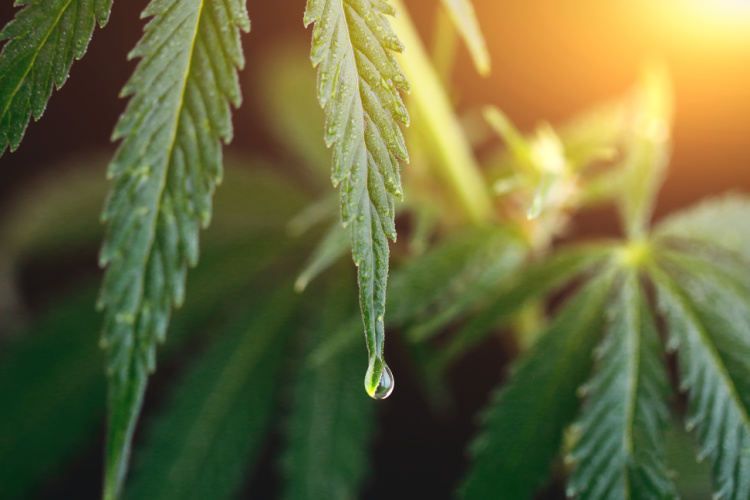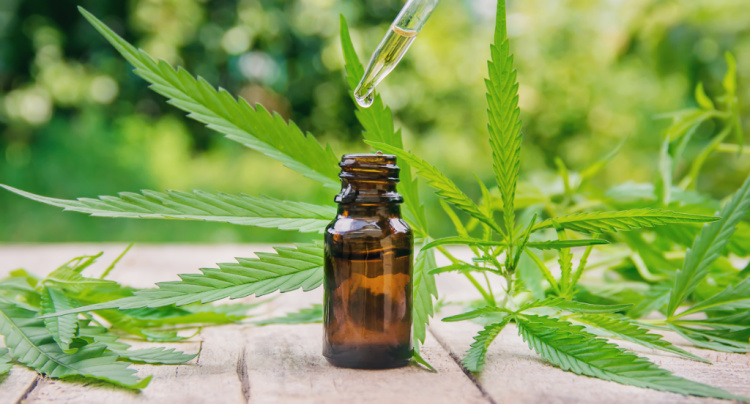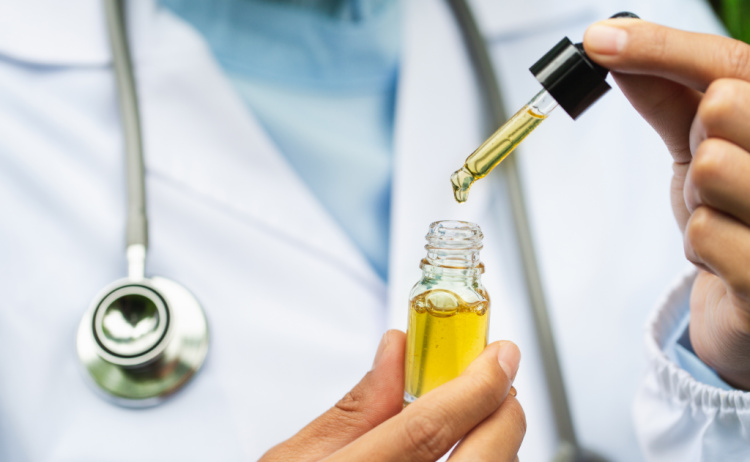Tinctures and oils are a safe and convenient way of consuming cannabis. They are often preferred by medical patients for their ease of use and fast-acting therapeutic effects. While these two kinds of products may look the same and are often grouped together, there are actually some important differences between them.

Cannabis Tincture vs Oil
In many cases, the terms “tincture” and “oil” are used interchangeably. This is mostly because these products look the same, are used in the same ways, and come in the same packaging. But assigning equivalency is incorrect because oils and tinctures typically contain varying ingredients and are produced using different methods.
Cannabis Oils
Cannabis oils and tinctures are typically made by extracting specific compounds from the cannabis plant and blending them with carrier oils that allow the mixture to be absorbed more easily.
One of the main differences when deciding whether to use cannabis tincture vs oil lies in how the two are produced. While oils are usually extracted using methods such as carbon dioxide extraction, ethanol extraction, or oil extraction, tinctures have been traditionally extracted using an alcohol extraction method.

What this difference in cannabis tincture vs oil production processes means is that oils have an oil liquid carrier/base, while tinctures have an alcohol base. This is a big advantage to consider when choosing between THC/CBD tincture vs oil because there are several types of carrier/base oils that a CBD or THC oil can be made with. For example, while most infused oils have a MCT oil base, they can also be made with bases such as olive oil, hemp seed oil, grapeseed oil, and even avocado oil.
Unlike tinctures, oils can come in several different varieties. Some oils are made with isolated cannabinoids and contain nothing more than THC or CBD. Others, meanwhile, can contain a mix of other plant compounds including other cannabinoids, terpenes, and flavonoids. These oils are known as either ‘broad-spectrum’ or ‘full-spectrum’ depending on exactly what they contain.
Cannabis Tinctures
Cannabis tinctures are made by dissolving plant material into a liquid medium, then straining out the plant matter—leaving behind only cannabis-infused liquid. Once mixed together, the mixture is left to sit for some time allowing the ingredients to properly blend together. In order to speed up the process, the mixture is sometimes heated on low heat for a couple of hours.
Traditionally, the liquid medium used for making a tincture was alcohol. Now, alternate mediums such as MCT or glycerin are sometimes used. Plant matter such as buds, leaves, and stems are mixed into the alcohol and left to mix before being strained out. However it’s made, a tincture is commonly mixed with a sweet carrier oil such as peppermint or orange in order to improve flavor before use.

Flavor Profile of Oils and Tinctures
Depending on your palette, one possible downside of cannabis oil is that it retains much of the plant’s earthy and grassy flavor that can sometimes taste bitter. Often, oils are infused with extra terpenes in order to improve their overall taste. Because of this bitter taste, adding cannabis oil to other foods or liquids may be detrimental to the flavor as a whole.
As such, depending on the oil, you may want to be mindful of how you consume it if flavor is a priority. If you don’t like the taste of your THC or CBD oil, sweet flavors tend to best mask the bitterness. You could try mixing it into a glass of juice, or even disguise the flavor by mixing the oil into pudding.
What is a tincture of CBD or THC going to taste like? Depending how it’s made, you might get some of the same bitterness and grassiness—though tinctures tend to have a slightly less cannabis-forward flavor.
Benefits of Cannabis Tincture vs CBD Oil
There really aren’t many functional differences when it comes to THC/CBD tincture vs oil benefits. What is a tincture of CBD or THC variety good for? Both of these concentrated liquids are simple to use, easy to transport, and take effect quickly. Since alcohol is a carcinogenic compound, many people simply prefer to avoid it in favor of oil. Alcohol-based tinctures are also believed to have a longer shelf life than oils. On the other hand, oils tend to have a higher potency, and can also be applied topically. However, it’s best to use an oil that is formulated specifically to be absorbed as a topical. Alcohol-based tinctures cannot effectively be applied topically.
How To Choose CBD Tincture vs Oil – Which Is Right For You?
Trying to decide between cannabis tincture vs oil? Remember that they can be used in the same ways to produce similar effects. But if you wish to avoid compounds like alcohol or glycerin then you may not want a tincture. Or, if you simply don’t like the strong taste of cannabis oils, then tincture may be a better choice. The flavor and formulation are the primary differences, unless you’re planning on storing the product for more than a year, in which case tincture may be a better option due to its more stable long-term suspension.
How To Use Tincture and CBD Oil
Ready to try using tincture or CBD oil? There are a few different ways you can use these types of products.
The most common way of using a tincture or oil is by applying it sublingually. Simply load up the dropper and place the liquid under the tongue for quick and easy sublingual dosing. Keep the liquid there for a minute, or longer if that’s comfortable for you, before swishing it around your mouth and swallowing it. Holding and swishing will allow some of the content of the oil or tincture to be absorbed directly by membranes under the tongue and on the insides of the cheeks. Upon swallowing, the rest of the cannabinoids will be processed through the stomach—an activation process akin to an edible.
Alternatively, these liquids can also be mixed into your favorite foods and liquids, or just swallowed whole, although research has indicated lower bioavailability when cannabis is processed through the stomach versus sublingually.
When Will Tincture or Oil Take Effect?
Now that you’re ready to take a dose, remember that how you choose to ingest your THC or CBD oil tincture will affect how you experience its effects. When applied sublingually, you can usually feel the effects of your THC or CBD tincture or oil within 15–20 minutes. Effects usually last a couple to a few hours. When swallowed, the effects of your THC or CBD tincture or oil can take anywhere from 30 minutes to a couple of hours to kick in, but can also last for several hours longer than that if taken sublingually.
As a premier dispensary, we always make sure to carry a wide selection of well-crafted cannabis tinctures and oils for our patients and customers. Check the menu for your nearest Green Goods to see what’s in stock now!
